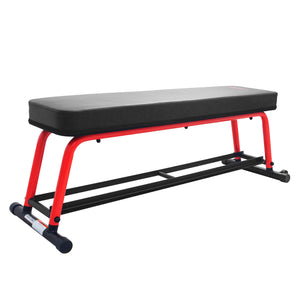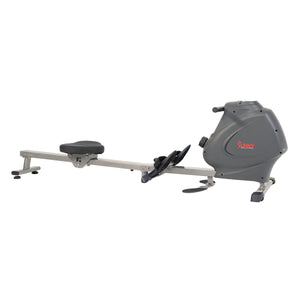In this modern era of “150 minutes of moderate-intensity physical activity and 2 days of muscle strengthening activity” per week according to the CDC,(1) it’s relatively well understood that, although cardio exercise is essential for good health, the benefits of resistance training are not to be overlooked. Additionally, there are those strength enthusiasts who know they should be doing more cardio but are worried that it will hamper their strength or muscle-building gains (or at least that’s their excuse!). And on top of that, almost everyone wants more muscle and less fat, or at least the ability to lose fat while maintaining muscle.
These factors lead a lot of people to combine resistance training and cardiovascular exercise in the same workout or the same fitness program. This approach is called concurrent training, for the simple reason that you are pursuing multiple fitness objectives concurrently. Such workouts are sometimes referred to as hybrid workouts.
Since at least 1980, hybrid workouts and concurrent training in general (which can refer to combining fitness objectives other than strength and cardio) have been studied to understand both their broad benefits and optimal implementation.(2)
As with almost anything else, the devil is in the details. But with a better understanding of hybrid workouts, you can enjoy the benefits of being a more well-rounded athlete and fitness practitioner. Read on to learn more.
Benefits of Hybrid Workouts
1. Increased calorie burn
Combining resistance training and cardiovascular exercise in one session results in a higher calorie burn than either type of exercise performed separately. This is because both types of exercise increase the body's energy demands, leading to a greater calorie burn overall. In fact, in a meta-analysis by Wilson et al, groups performing hybrid workouts lost more bodyfat than groups performing strength training or cardio exercise alone. Nothing wrong with that!
2. Improved cardiovascular fitness
By combining resistance training with cardiovascular exercise, you can improve your cardiovascular fitness more quickly. This was demonstrated in the same meta-analysis by Wilson et al: while the resistance-training-only group experienced a reduction in V02Max (meaning, their cardiovascular capacity got worse), the group performing hybrid workouts experienced improvements in V02Max that outstripped the cardio-only group.(3)
3. Increased muscle mass
Resistance training is essential for building and maintaining muscle mass, while cardiovascular exercise can help to maintain muscle mass and prevent muscle loss. When combined, the two types of exercise provide an even greater stimulus for muscle growth and maintenance. This seems to be especially true for individuals with some familiarity with resistance training, rather than those who have never lifted before.(4) The reason for this is not immediately apparent, but regardless, a recent study by Konopka and Harber demonstrates that, contrary to popular belief, it is possible for cardio exercise to build or maintain muscle mass.(5) One shouldn’t rely on cardio alone to build muscle mass, but at least we know it needn’t be a detriment.
4. Improved athletic performance
Concurrent training can improve athletic performance by increasing both strength and endurance. This is especially true for athletes who require both strength and endurance to perform well in their sport, such as runners or football players.
5. Improved time efficiency
One of the biggest benefits of concurrent training is that it allows you to achieve both cardiovascular and resistance training goals in a single workout session, saving time and making it easier to stick to a regular exercise routine.
Hybrid Workout Myths
I’ve already hinted at some of the misperceptions, or outright myths, surrounding Hybrid workout programs that are often perpetuated in the fitness community. Here are a few of the most common in a little more depth.
Cardio will impede muscle growth: While it is possible for cardio exercise to negatively impact muscle growth, it is not an inevitability. It appears that lower-impact cardio, such as cycling,(4) further negates the “interference effect” (coined in Dr Hickson’s 1980 study) once thought to be the limiting factor in the efficacy of hybrid workouts. So much for that excuse!
Resistance training will impede cardiovascular improvements: A common interpretation of the Hickson study is the “interference” of strength training will limit one’s cardiovascular efforts, but more recent research by Aagaard and Andersen demonstrates this is not the case. Not only that, but the OPPOSITE is true. Here’s a quote: “...strength training can lead to enhanced long-term (>30 min) and short-term (<15 min) endurance capacity both in well-trained individuals and highly trained top-level endurance athletes.”(6)
Doing cardio first or strength first is largely a matter of personal preference: Evidence suggests that doing strength training first and cardio second is preferable for minimizing the interference of cardio on strength training performance.(7) Furthermore, separating the two activities by as much time as possible (six hours or more) or doing them on separate days further enhances efficacy and recovery.(8)
That said, if you need to do cardio first for whatever reason, you can do higher-intensity cardio in the morning, refuel with calories throughout the day to restore glycogen levels, and then perform resistance training in the evening. Or, in the same workout, low-intensity, non-depleting cardio can be done right before strength training with no ill effects and even some benefits to strength training. But that phrase, “low intensity, non-depleting” is paramount.(9)
How to Implement a Hybrid Workout Program
Structuring hybrid workout programs is a simple matter. Here are the key guidelines based on what we know.
- If you’re performing both activities in one workout, do the resistance training first.
- If you’re performing both activities in separate workouts on the same day, you can do the cardio workout early in the day, 3-6 hours before the resistance training.
- If you’re performing both activities in the same week but in separate workouts, an increase in volume in one activity should be balanced by a reduction in volume in the other.
- You can experiment with using HIIT training to keep your time spent doing cardio to a minimum with maximum benefit.
- Generally, cycling or rowing are better suited for concurrent training than running in terms of limiting interference.
There may be some experimentation involved in finding what works best for you. Ideally, you will be able to maximize resistance training (meaning, getting stronger and/or performing more reps) and cardiovascular training (meaning higher endurance, better resting heart rate, longer distances, et cetera). But now that you know the basics, you can effectively reap the benefits of the two most popular training objectives—strength and cardio—with relative ease.
Top 5 Hybrid Workouts to Add to Your Training
Here are some sample hybrid workouts to test out. Each style targets a different goal, so find what works best for your fitness journey.
Legend:
RT=Resistance Training
C=Cardio
SS=Steady-state
HIIT=High-Intensity Interval Training
1. Resistance Training and Cardio in Same Session
This style of Hybrid workout is arguably the most efficient and comprehensive, but it may require building up to this level of stamina. If desired, you can move one of the Rest days to the middle of the week.
| Monday |
RT: Back Squat 3x10 C: Cycling 30min SS |
| Tuesday |
RT: Bench Press 3x10 C: Rowing 20min HIIT |
| Wednesday |
RT: Barbell Row 3x10 C: Rowing 30min SS |
| Thursday |
RT: Barbell RDL 3x8 Cycling: 30min SS |
| Friday |
RT: Barbell Overhead Press 3x8 C: Rowing 20min HIIT |
| Saturday | REST |
| Sunday | REST |
2. Resistance Training and Cardio on Same Day, Different Session
Doing two workouts a day is not for the faint of heart, but it can yield massive rewards across the board. Having a home gym, or at least cardio equipment at home, makes this process much easier as there is less time spent traveling. Sleep and proper nutrition are an absolute must.
| AM | PM | |
| Monday | C: Rowing 30min HIIT | RT: Back Squat 3x10 Dumbbell RDL 3x8 Seated Calf Raise 3x12 Plank 3x30-60sec |
| Tuesday | C: Cycling 30min HIIT | RT: Bench Press 3x10 Close-Grip Pushup 3x8-15 Dumbbell Flyes 3x10 |
| Wednesday | C: Cycling 30min HIIT | RT: Barbell Row 3x10 Barbell Curl 3x10 Rear Delt Flyes 3x12 Lying Leg Raises 3x15 |
| Thursday | Rowing: 30min HIIT | RT: Barbell RDL 3x8 Goblet Squat 3x10 Standing Calf Raise 3x12 |
| Friday | C: Cycling 20min HIIT | RT: Barbell Overhead Press 3x8 Chinups (assisted if necessary) 3x5-10 Overhead Triceps Extension 3x10 Dumbbell Pullover 3x10 |
| Saturday | REST | REST |
| Sunday | REST | REST |
3. Resistance and Cardio on Different Days
This arrangement involves only three resistance training workouts, hence the amount of exercises per workout is higher. There is a Leg Day, a Pull Day, and a Push Day. But, you could even see great results if you reduced it to two strength workouts per week (Upper and Lower, or Full-Body) and rested on that third day.
| Monday | RT: Back Squat 3x10 Barbell RDL 3x8 Walking Lunges 3x10 per side Seated Calf Raise 3x12 Glute Bridge 3x15 |
| Tuesday | Cycling: 30min SS |
| Wednesday | RT: Barbell Row 3x10 Rear Delt Flyes 3x12 Chinups (assisted if necessary) 3x5-10 Dumbbell Pullover 3x10 Barbell Curl 3x10 Lying Leg Raise 3x10 |
| Thursday | C: Running 30min SS |
| Friday | RT: Bench Press 3x10 Barbell Overhead Press 3x8 Dumbbell Flyes 3x10 Overhead Triceps Extension 3x10 Plank 3x30-60 |
| Saturday | C: Rowing 30min SS |
| Sunday | REST |
4. Equipment-Free Resistance and Cardio on the Same Day
If you are working out at home and have very little equipment, you’re on the road for an extended period of time, or you just like calisthenics-style movements, this bodyweight-driven Hybrid workout is for you.
| Monday | Sissy Squat 4x8 Nordic Ham Curl 3x8 Calf Raise 3x20 Unilateral Glute Bridge 3x20 per side |
| Tuesday | Burpees 10x10 with 60 second rest between sets Plank 3x60 seconds |
| Wednesday | Pushups 1x20, 1x15, 1x10 Dips 3x5-10, 1x10 assisted with feet Deficit Pike Pushups 2x6-10 |
| Thursday | ox Jumps 5x12 with 60 seconds rest between sets Lying Leg raises 3x15 |
| Friday | [Weighted] Pullups 3x5-8 Inverted Rows 3x10 Slow-Negative Chinups with emphasis on biceps 3x8 |
| Saturday | Jogging 2 miles |
| Sunday | REST |
5. Concurrent Training for Max Strength
The purpose of this workout, first and foremost, is to increase muscular strength, and not necessarily to lose weight. You must get 8-10 hours of quality sleep per night and be in a caloric surplus to sustainably perform this workout. Incorporate a de-load week (a large reduction in intensity and volume) every fifth week. If you find yourself continually skipping the cardio because you're too tired, do it on your rest days.
Week 1
| Monday |
RT: Low-Bar Squat 3x5 C: Incline Walk 30min SS |
| Tuesday | Rest |
| Wednesday |
RT: Bench Press 3x5 C: Sled Push 10 Pushes across with 60 seconds rest between them |
| Thursday | Rest |
| Friday |
RT: High-Bar Squat 3x10 C: Rowing 30min SS |
| Saturday | REST |
| Sunday | REST |
Week 2
| Monday |
RT: Low-Incline Pause Bench Press 3x5 C: Sled Push 10 Pushes across with 60 seconds rest between them |
| Tuesday | Rest |
| Wednesday |
RT: Deadlift 1x5 C: Rowing: 30min SS |
| Thursday | Rest |
| Friday |
RT: C: Sled Pull: 10 Pulls with 60 seconds rest between them |
| Saturday | REST |
| Sunday | REST |
1. “How Much Physical Activity Do Adults Need?” Centers for Disease Control and Prevention, Centers for Disease Control and Prevention, 2022, https://www.cdc.gov/physicalactivity/basics/adults/index.htm. Accessed 5 February, 2023.
2. Hickson RC. Interference of strength development by simultaneously training for strength and endurance. Eur J Appl Physiol Occup Physiol. 1980;45(2-3):255-63. doi: 10.1007/BF00421333. PMID: 7193134. Accessed 5 February, 2023.
3. Wilson JM, Marin PJ, Rhea MR, Wilson SM, Loenneke JP, Anderson JC. Concurrent training: a meta-analysis examining interference of aerobic and resistance exercises. J Strength Cond Res. 2012 Aug;26(8):2293-307. doi: 10.1519/JSC.0b013e31823a3e2d. PMID: 22002517. Accessed 5 February, 2023.
4. Haun, C. (2018, November 17). Concurrent Training For The Powerlifter, Part 1: An Introduction And Background. Stronger By Science. Retrieved January 26, 2023, from https://www.strongerbyscience.com/concurrent-training/. Accessed 5 February, 2023.
5. Konopka AR, Harber MP. Skeletal muscle hypertrophy after aerobic exercise training. Exerc Sport Sci Rev. 2014 Apr;42(2):53-61. doi: 10.1249/JES.0000000000000007. PMID: 24508740; PMCID: PMC4523889. Accessed 5 February, 2023.
6. Aagaard P, Andersen JL. Effects of strength training on endurance capacity in top-level endurance athletes. Scand J Med Sci Sports. 2010 Oct;20 Suppl 2:39-47. doi: 10.1111/j.1600-0838.2010.01197.x. PMID: 20840561.Accessed 5 February, 2023.
7. Coffey VG, Jemiolo B, Edge J, Garnham AP, Trappe SW, Hawley JA. Effect of consecutive repeated sprint and resistance exercise bouts on acute adaptive responses in human skeletal muscle. Am J Physiol Regul Integr Comp Physiol. 2009 Nov;297(5):R1441-51. doi: 10.1152/ajpregu.00351.2009. Epub 2009 Aug 19. PMID: 19692661. Accessed 5 February, 2023.
8. Sale DG, Jacobs I, MacDougall JD, Garner S. Comparison of two regimens of concurrent strength and endurance training. Med Sci Sports Exerc. 1990 Jun;22(3):348-56. PMID: 2381303. Accessed 5 February, 2023.
9. Lewis, M. (2015, March 18). How To Maximize Concurrent Training. Stronger By Science. Retrieved January 28, 2023, from https://bretcontreras.com/how-to-maximize-concurrent-training/. Accessed 5 February, 2023.

Mark Ludas CPT is a NASM-certified personal trainer with a decade of experience in the fitness industry. After an asthmatic childhood, Mark discovered his natural aptitude for fitness in his late twenties. At age 36, he accomplished a 300+ pound conventional deadlift and 280+ high-bar squat as a 6’5” 170-pound ectomorph on a fully vegan diet, all after just one year of proper self-programming. Mark is the founder of Resistance Quest Fitness, established in 2016. Additionally, he is a writer, actor, model, and musician. Find him on Instagram, Facebook, Youtube, and at www.resistancequest.com.




























Add Your Name & Email
Please enter your name and email to continue.We won’t display your email publicly.